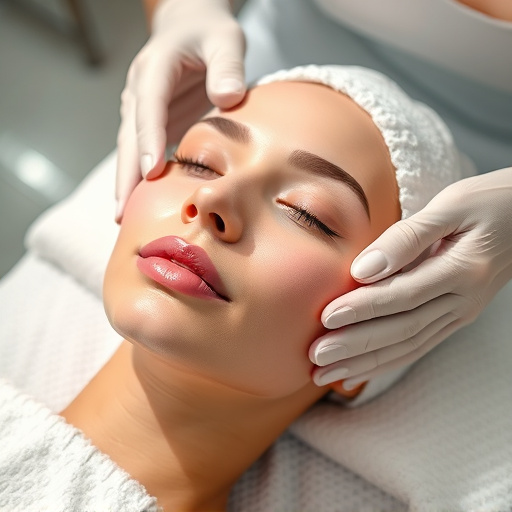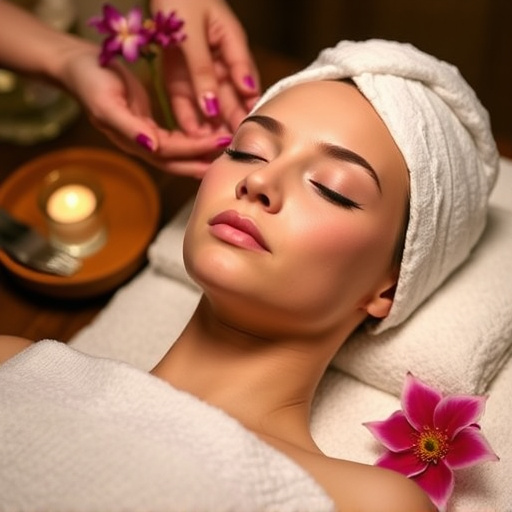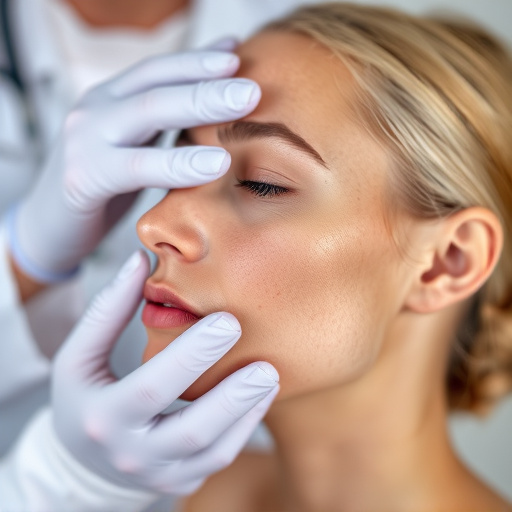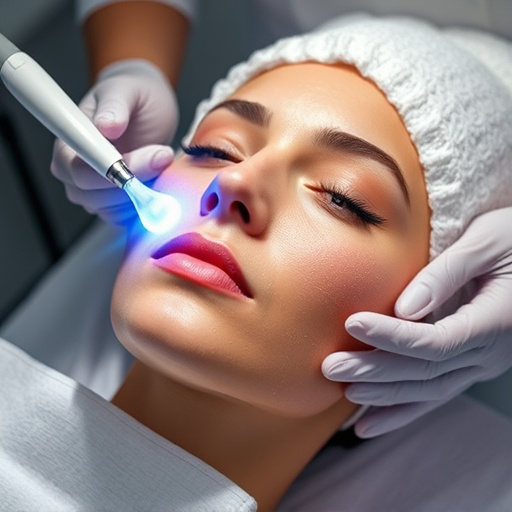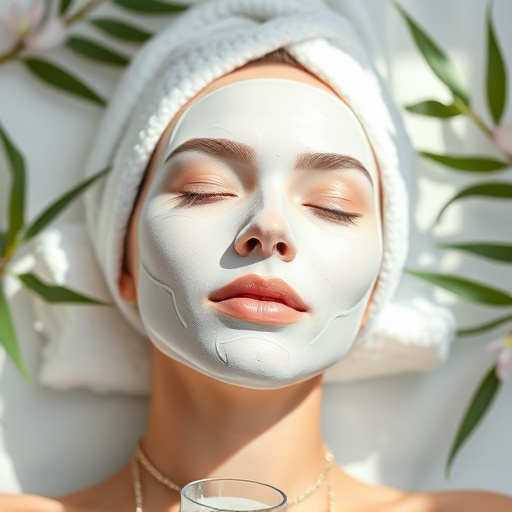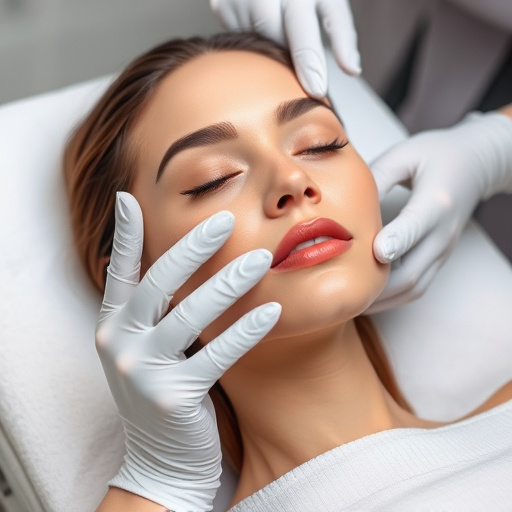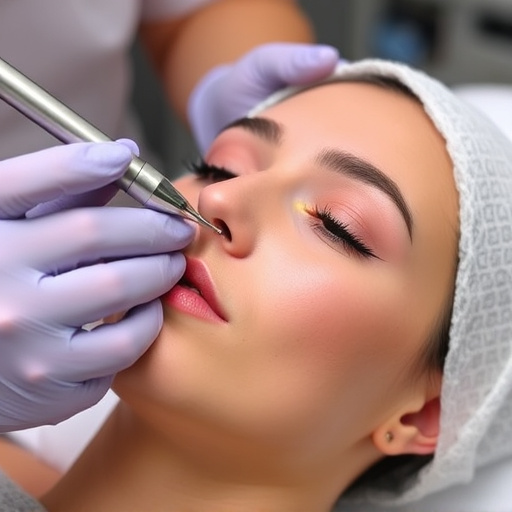Lactic acid peels improve skin texture and complexion but carry risks for sensitive or acne-prone skin. Individuals with conditions like rosacea, eczema should exercise caution. Consulting a dermatologist is crucial to ensure safe and effective wrinkle reduction without skin damage. Safer alternatives like glycolic acid, salicylic acid, sugar scrubs, microdermabrasion offer lower irritation risk.
“Considering a lactic acid peel for your skin care routine? While these treatments offer numerous benefits, such as improved texture and reduced fine lines, understanding when to steer clear is paramount for skin safety. This guide explores the nuances of lactic acid peels, focusing on skin sensitivity—a key factor in determining suitability. We’ll also uncover alternative exfoliation methods, ensuring you make informed choices for healthy, radiant skin.”
- Understanding Lactic Acid Peels: Benefits and Risks
- Skin Sensitivity: When Lactic Peels Can Be Harmful
- Alternative Treatments: Safe Exfoliation Options
Understanding Lactic Acid Peels: Benefits and Risks

Lactic acid peels are a popular choice for those seeking improved skin texture and enhanced complexion. This treatment involves applying lactic acid to the skin, which helps to exfoliate dead skin cells, stimulate collagen production, and promote cell turnover. The result is often a brighter, more even-toned appearance with reduced fine lines and wrinkles, making it a favored option for anti aging treatments.
However, like any procedure, lactic acid peels are not without risks. While they can be highly effective for skin brightening and overall skin health, certain individuals may experience side effects such as redness, irritation, or sensitivity. People with sensitive skin, active acne, or certain skin conditions should exercise caution. It’s crucial to consult a dermatologist who can assess your specific needs and determine if lactic acid peels are suitable for your skin type and desired outcomes.
Skin Sensitivity: When Lactic Peels Can Be Harmful
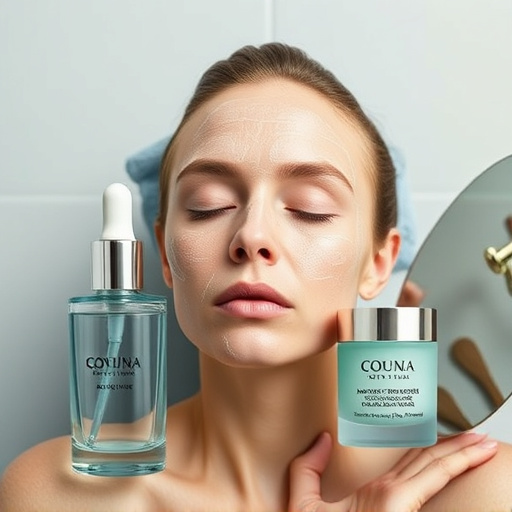
Skin sensitivity is a significant factor to consider when contemplating lactic acid peels. While these aesthetic treatments are popular for their ability to enhance skin texture and reduce wrinkles, they can be harmful for those with sensitive skin. Lactic acid peels work by exfoliating the top layer of the epidermis, which helps to smooth out fine lines and unclog pores. However, this process can cause irritation, redness, and even peeling in individuals whose skin is particularly delicate or prone to allergies.
If you’ve experienced adverse reactions to other exfoliants or have a history of skin conditions like rosacea, eczema, or sensitive skin, it’s best to avoid lactic acid peels. Medical spa services offering these aesthetic treatments should always be approached with caution. Professional consultations are crucial to determine if a lactic acid peel is suitable for your specific needs, ensuring that you receive the benefits of wrinkle reduction without risking skin damage from an unsuitable treatment.
Alternative Treatments: Safe Exfoliation Options
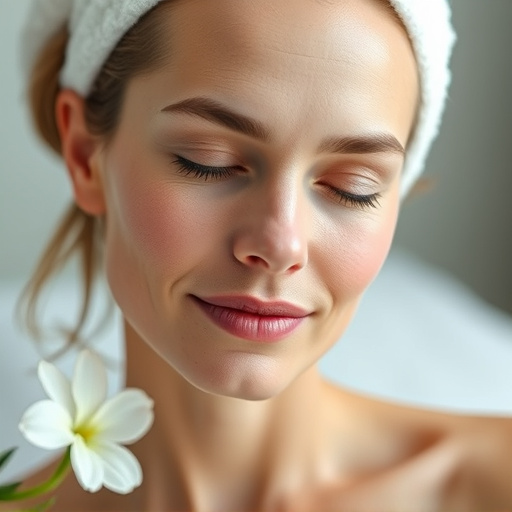
When considering skincare treatments, it’s essential to explore alternative options that offer safe and effective exfoliation without the potential risks associated with lactic acid peels. While lactic acid is a popular ingredient for its ability to improve skin texture and reduce fine lines, it might not be suitable for everyone due to its strength and sensitivity to certain skin types.
Instead of lactic acid peels, several gentle exfoliation methods can achieve remarkable results. Chemical exfoliants like glycolic acid or salicylic acid offer mild alternatives with lower risks of irritation. Physical exfoliators such as sugar scrubs or microdermabrasion provide a natural way to slough off dead skin cells. Moreover, treatments like laser hair removal and pore refinement procedures can address specific concerns, promoting smoother, tighter-looking skin without the need for harsh chemicals.
While lactic acid peels offer potential skin rejuvenation benefits, prioritizing skin safety is paramount. Individuals with sensitive or compromised skin should exercise caution due to the risk of irritation and adverse reactions. If you experience skin sensitivity or have concerns, exploring alternative exfoliation methods ensures a smoother, safer journey towards achieving radiant, healthy skin.








